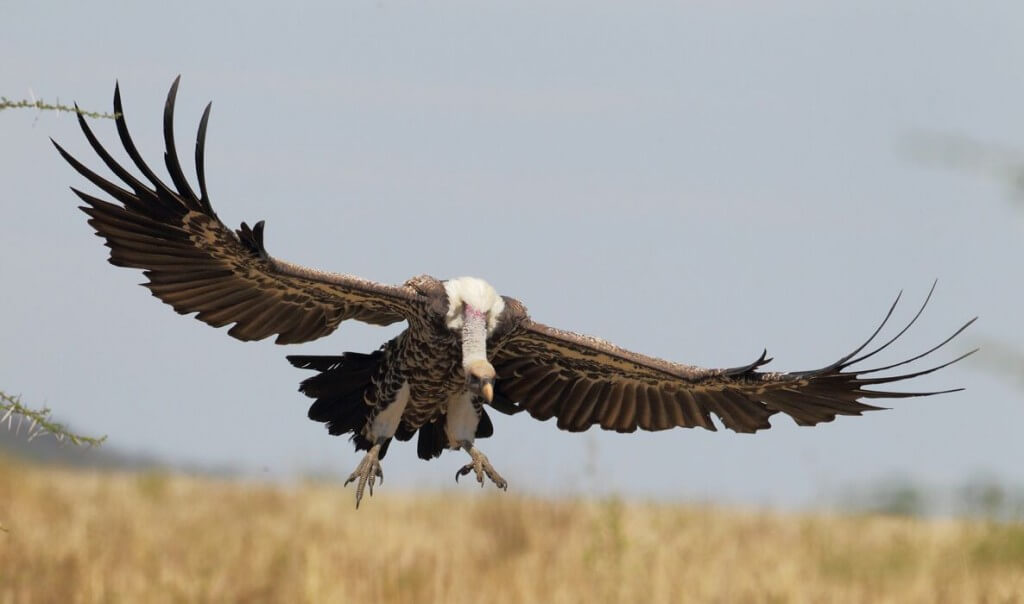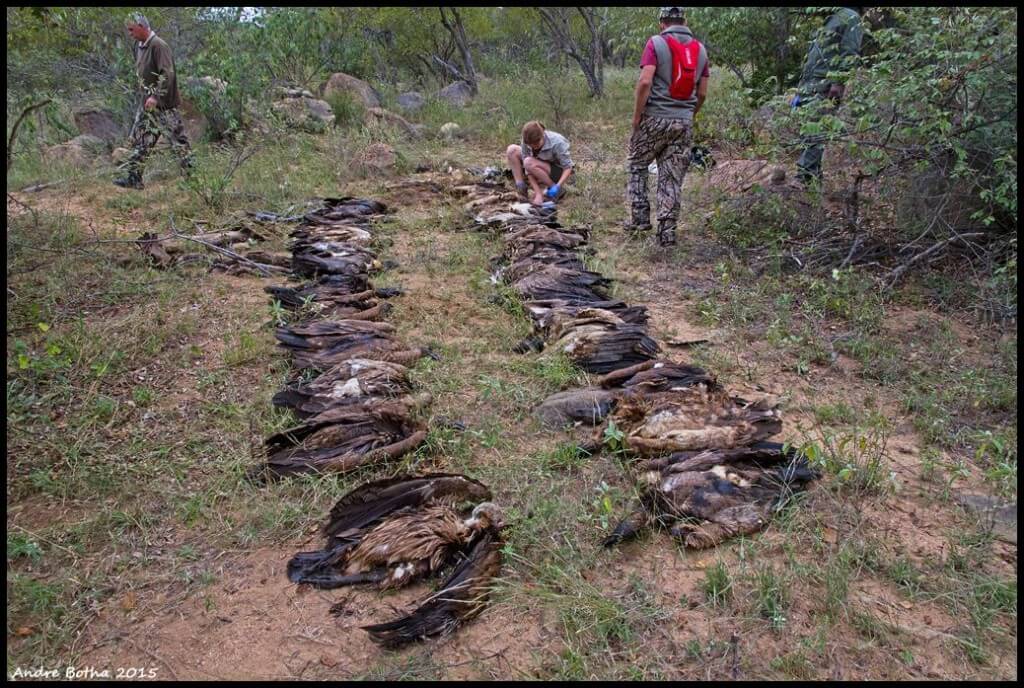
Vulture are declining at a rate of about 97% over three generations (or 56 years).
After Chris Bowden’s two informative Guest Blogs on vultures (Asia vulture crisis and Africa and Europe) it is worth noting that the recent global reassessment of species’ status has resulted in six species of African vulture being assessed as more threatened than previously. In fact, four species, all of which I have seen, Hooded, White-backed, White-headed and Ruppell’s Vultures, are now listed as critically endangered.
Without being extinct, critically endangered is as bad as it can get. These four species are thought, each, to have a greater than 50% chance of going extinct in the wild in three generations (vulture generations).
This subject was also covered in a blog earlier this year (African vultures plummet in numbers, 18 June 2015). Poisoning is the main reason for the decline. the vultures are killed accidentally by baits put out to kill large mammals such as Lions and Spotted Hyaenas, or are deliberately targetted by poachers so that circling vultures do not give way the location of killed rhinos or African Elephants.

[registration_form]
When will governments realise that they are losing a vital and FREE cleaning service.
If they do not act now, rabies, anthrax and plague will increase worldwide resulting in human misery. Vultures are the end of the pathogen chain, they can eat a rabid dog and come to no harm, however, feed them Diclofenac and they will die within hours.
Asia found this out to their huge cost, Africa is finding out the same and Europe thinks it’s a great idea to license the drug for use in Spain. (March 2013)
We need action worldwide now! The talking must stop and conservation start.
Iran banned this drug 3 weeks ago, time for other governments to follow their lead.
But even worse is that this is largely due to poisoning by poachers or just folks wanting to kill big predators. They can’t be identified, let alone negotiated with. The only solution to this would be for China and others to put an end to the demand for ivory and rhino horn – and to reduce human population pressure on remaining wild areas. Since neither of these seems to be happening soon, it’s all rather depressing.